Nature Knows and Psionic Success
God provides
Psychologist to explore how brain remembers precise information

Credit: University of California, Riverside. RIVERSIDE, Calif. — A person’s general intelligence and ability to understand language are reliant on the brain’s ability to maintain precise information acquired over a short period of time. To understand how these types of natural vision and cognitive functions are achieved in both healthy populations and individuals at high risk for psychosis, Weiwei Zhang, an assistant professor of psychology at UC Riverside, will assess how the brain’s hippocampus, a deep structure believed to be an exclusive hub for long-term memory, supports encoding, maintaining, and accessing precise short-term and long-term memories. An expert on visual attention, working memory, and cognitive modeling, Zhang has received a five-year, $1.4 million grant from the National Institute of Mental Health, a division of the National Institutes of Health, to conduct the research. "We will use functional neuroimaging to investigate whether the hippocampus in human participants shows an increase in neural activities when we try to remember ongoing events as accurately and precisely as possible," said Zhang, the grant’s principal investigator. "This project will provide a clearer understanding of the functional limitations in working memory and establish the basic science backbone for future practice designed to understand and treat cognitive dysfunction in schizophrenia spectrum disorders and foggy memory in aging and other clinical populations." Zhang said the brain’s maintenance of information over a short period of time in working memory is pivotal for observers’ efficient interaction with exceedingly rich environmental content for both lower-level perception, such as maintaining relevant information across eye movements, and higher-level cognitive functions, including general intelligence and decision making. Research in the past several decades on working memory and its deficits in various clinical populations has emphasized the quantitative aspect of working memory — how much information can be retained — and the corresponding neural […]
Scientists discover sticking brain cells together with a glue-like molecule could boost memory and even protect against Alzheimer’s
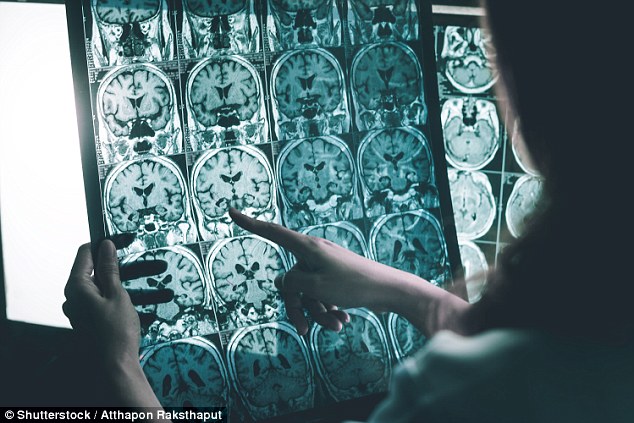
Sticking brain cells together with a glue-like substance could boost memory and protect against Alzheimer’s, scientists hope. Tests on mice with a newly created molecule suggests the out-of-the-box concept works. But trials have yet to take place on humans. Neuroscientists have branded the idea ‘clever’, as they work round-the-clock to unearth new ways of protecting against Alzheimer’s. Estimates suggest 500,000 patients in the UK and 5.5 million in the US are battling the most common form of dementia. Currently there is no cure. But drugs can slow down its progression and the earlier it is spotted, the more effective treatment is. Estimates suggest 500,000 patients in the UK and 5.5 million in the US are battling the most common form of dementia Estimates suggest 500,000 patients in the UK and 5.5 million in the US are battling the most common form of dementia German researchers tested the new molecule, in hope of uncovering a new way of stopping brain cells from being detached from each other. Their promising results were unveiled at a conference in Berlin last month, attended by some of Europe’s leading neuroscientists. The molecule they created, named CPTX, protects vital connections between brain cells that transport signals, called synapses. Alzheimer’s patients gradually lose synapses, the junction between neurons, which evidence suggests worsens their memory. Professor John Aggleton, a neuroscientist at Cardiff University, told NewScientist : ‘It is very clever and has a natural logic to it.’ But he warned promising results on mice are rarely replicated in humans, when it comes to trialing drugs and treatments. Researchers at the German Center for Neurodegenerative Diseases in Magdeburg trialled CPTX on mice engineered to have similar symptoms to Alzheimer’s. Rodents that received the chemical performed better on memory tests – such as having to recognise a new object, […]
Simple exercises that increase your intelligence gradually

( Natural News ) Everyone wants to be smarter. It so happens that there are ways to increase your intelligence every day. An article on Be Brain Fit related the 11 methods by which you can improve your brainpower . The first is hanging out with smart people . Intelligence can indeed rub off on you. People absorb ideas and knowledge from their surroundings. The people you often talk to will affect your mindset and vocabulary. The second is getting better at listening . Most people only remember one out of every four things they listen to. You can improve your listening skills by refraining from making noise for several minutes a day and focusing on picking out specific sounds. During conversations, acknowledge the person you’re talking to and never be afraid to ask questions if you honestly didn’t understand the matter. The third is an expansion of the previous part. Never stop asking questions about who that person is, how the process works, why it happens, and so on and so forth. The more curious you are about things, the more you will learn and grow. The fourth is to buck the trend and think differently . Be creative and use your imagination. Don’t take everyone’s word on something; see for yourself if you can improve on it. (Related: Chemotherapy found to stop new brain cells from growing, worsening depression in brain cancer patients .) Exercise your brain and non-dominant hand while eating right The fifth is to do mental exercises . You need to push your brain to work harder if you want it to grow. The harder you use your brain, the more it improves because you’re using parts of it that you normally don’t use. Mother Nature’s micronutrient secret : Organic Broccoli Sprout Capsules now […]
One of nature’s best kept secrets: Elya leaves reduce brain damage linked to Alzheimer’s

A study published in the journal BMC Complementary and Alternative Medicine has found another potential natural treatment for Alzheimer’s disease and other degenerative diseases. In the study, researchers suggest that the leaves of elya plant ( Elatostema papillosum ) can prevent neurocognitive decline associated with Alzheimer’s disease . A team of researchers from the International Islamic University Chittagong , Islamic University , and the University of Rajshahi in Bangladesh evaluated the antioxidant and anticholinesterase properties of the leaves of elya plant. In conducting the study, the research team used a methanolic extract from the leaves of elya plant. Then, they looked at the acetylcholinesterase (AChE) and butyrylcholinesterase (BChE) inhibitory activity and the antioxidant activity of elya leaf extract. In addition, they assessed the phenolic and flavonoid contents of the elya leaf extract. Based on the results, the elya leaf extract exhibited inhibitory AChE and BChE activity. In addition, the elya leaf extract demonstrated potent antioxidant activity. The elya leaf extract was also found to be rich in flavonoid and phenolic contents. The antioxidant and anticholinesterase properties of the elya leaf extract prevent oxidative stress and cellular damage, which play a role in the development of degenerative diseases like Alzheimer’s disease. The findings of the study suggested that the elya leaf extract can potentially reduce the risk of various degenerative diseases like Alzheimer’s disease because of its antioxidant and anticholinesterase activities. Mother Nature’s micronutrient secret : Organic Broccoli Sprout Capsules now available, delivering 280mg of high-density nutrition, including the extraordinary "sulforaphane" and "glucosinolate" nutrients found only in cruciferous healing foods. Every lot laboratory tested. See availability here. Other herbal treatments for Alzheimer’s disease In addition to elya leaves, there are other herbaceous plants have been studied for the treatment of Alzheimer’s disease . (Related: Herbal antioxidants improve learning and memory, […]
One of nature’s best kept secrets: Elya leaves reduce brain damage linked to Alzheimer’s

( Natural News ) A study published in the journal BMC Complementary and Alternative Medicine has found another potential natural treatment for Alzheimer’s disease and other degenerative diseases. In the study, researchers suggest that the leaves of elya plant ( Elatostema papillosum ) can prevent neurocognitive decline associated with Alzheimer’s disease . A team of researchers from the International Islamic University Chittagong , Islamic University , and the University of Rajshahi in Bangladesh evaluated the antioxidant and anticholinesterase properties of the leaves of elya plant. In conducting the study, the research team used a methanolic extract from the leaves of elya plant. Then, they looked at the acetylcholinesterase (AChE) and butyrylcholinesterase (BChE) inhibitory activity and the antioxidant activity of elya leaf extract. In addition, they assessed the phenolic and flavonoid contents of the elya leaf extract. Based on the results, the elya leaf extract exhibited inhibitory AChE and BChE activity. In addition, the elya leaf extract demonstrated potent antioxidant activity. The elya leaf extract was also found to be rich in flavonoid and phenolic contents. The antioxidant and anticholinesterase properties of the elya leaf extract prevent oxidative stress and cellular damage, which play a role in the development of degenerative diseases like Alzheimer’s disease. The findings of the study suggested that the elya leaf extract can potentially reduce the risk of various degenerative diseases like Alzheimer’s disease because of its antioxidant and anticholinesterase activities. 100% organic essential oil sets now available for your home and personal care, including Rosemary, Oregano, Eucalyptus, Tea Tree, Clary Sage and more, all 100% organic and laboratory tested for safety. A multitude of uses, from stress reduction to topical first aid. See the complete listing here , and help support this news site. Other herbal treatments for Alzheimer’s disease In addition to elya leaves, […]
Learn how to rebuild your health and quality of life with the Planetary Healing Club

( Natural News ) Many people are looking for ways they can rebuild their health and improve their quality of life, but this search often leads them to the wrong places. If you’re interested in health, consciousness, and improving the world, the Planetary Healing Club could provide you with some very useful insight. Lost Art Radio host Richard Sacks is the brain behind the club, which is based on the belief that we can use our own innate abilities to improve ourselves and the world around us and that we have more power than we think. Sacks became an experimental health researcher in 1965 in response to serious health issues he was experiencing at that time, and he has never gone back to conventional medicine. The club meets weekly, and its main purpose is sharing the lessons Sacks has learned about aging, degenerative disease, boosting immunity without drugs and vaccines, and related topics. The information he shares is all based on insight he has learned firsthand through 50 years of experience rather than rehashing things that many of us have already read about. In a video posted to the free speech video platform REAL.video , Sacks said this knowledge is especially important right now as we deal with chemtrails , our poisoned food supply, and the smart grid, to name just a few. He feels that many advancements that appear to be modern conveniences are actually tools for your own suicide – they might help in everyday life, but they also pose lots of risks. He wants to help people take a look at everything happening around them without letting it get to them too much. Avoiding anger and negativity is difficult, but he believes it’s essential for reaching your true potential. Mother Nature’s micronutrient secret : Organic Broccoli […]
Pilot Study Indicates Qualia Mind Improving Reasoning, Episodic Memory, Verbal Ability and Concentration
ENCINITAS, Calif: Neurohacker Collective recently began a pilot study using the CBS Health platform powered by Cambridge Brain Sciences (CBS)-a leading provider of cognitive testing tools-to help customers receive quantitative feedback on their current brain health. In the initial pilot study, customers were self-selected and offered free cognitive testing with the purchase of Neurohacker Collective’s nootropic, Qualia Mind. Participants were asked to complete the testing three times: before starting on Qualia Mind, after their first dose of Qualia Mind, and the final test after five days of using Qualia Mind. The results for the 23 eligible subjects revealed meaningful improvement in core cognitive areas of reasoning, verbal ability and concentration. After 5 days of taking Qualia Mind, participants saw an average 85.4% increase in scores to measure ability to concentrate/avoid distraction, 37.2% increase in scores for planning skills, 31.1% increase in scores for visual representation, 16.9% increase in scores for verbal reasoning, 13.3% increase in scores for verbal short-term memory, and 10.2% increase in scores for episodic memory. While these are just preliminary findings on a small number of people, they are exciting initial results to see. For additional details on the study visit neurohacker.com/qualia-mind-pilot-study. Neurohacker Collective is now preparing to offer the program to all customers using Qualia Mind, who will have the option to take Cambridge Brain Sciences quantitative tests before and after starting to use the product so that each customer can see the changes in their cognitive function from an empirical standpoint. "I’m not surprised by the initial findings of the pilot study using CBS Health. They follow from a smaller study conducted last year measuring qEEG, stress profiles, other computerized assessment tools, and capnography where we saw objective improvement in brainwave patterns and cognitive performance from using Qualia," said Dr. Daniel Stickler, Medical Director […]
DARPA Wants to Zap Your Brain to Boost Your Memory
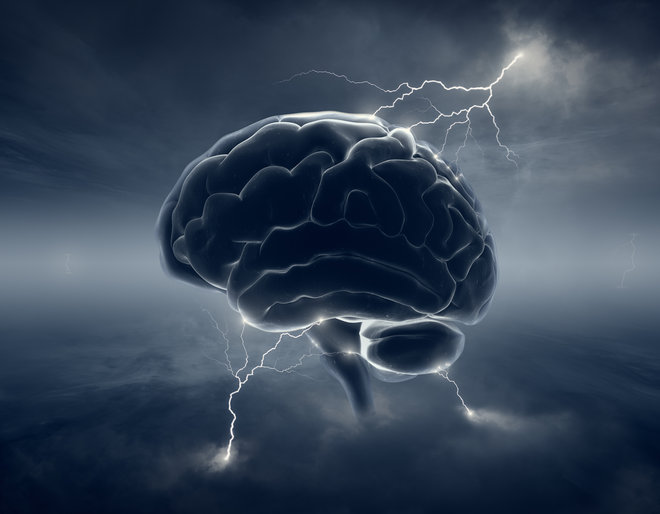
MORE Credit: Shutterstock We may go to sleep at night, but our brains don’t. Instead, they spend those quiet hours tidying up, and one of their chores is to lug memories into long-term storage boxes . Now, a group of scientists may have found a way to give that memory-storing process a boost, by delivering precisely timed electric zaps to the brain at the exact right moments of sleep. These zaps, the researchers found, can improve memory . And to make matters even more interesting, the team of researchers was funded by the Defense Advanced Research Projects Agency (DARPA), the U.S. agency tasked with developing technology for the military. They reported their findings July 23 in The Journal of Neuroscience . If the findings are confirmed with additional research, the brain zaps could one day be used to help students study for a big exam, assist people at work or even treat patients with memory impairments , including those who experienced a traumatic brain injury in the military, said senior study author Praveen Pilly, a senior scientist at HRL Laboratories, a research facility focused on advancing technology. [ 5 Surprising Sleep Discoveries ] The study involved 16 healthy adults from the Albuquerque, New Mexico, area. The first night, no experiments were run; instead, it was simply an opportunity for the participants to get accustomed to spending the night in the sleep lab while wearing the lumpy stimulation cap designed to deliver the tiny zaps to their brains. Indeed, when the researchers started the experiment, "our biggest worry [was] whether our subjects [could] sleep with all those wires," Pilly told Live Science. The next night, the experiment began: Before the participants fell asleep, they were shown war-like scenes and were asked to spot the location of certain targets, such as […]
Say ‘no’ to nootropics? Expert advises extreme caution and extensive research
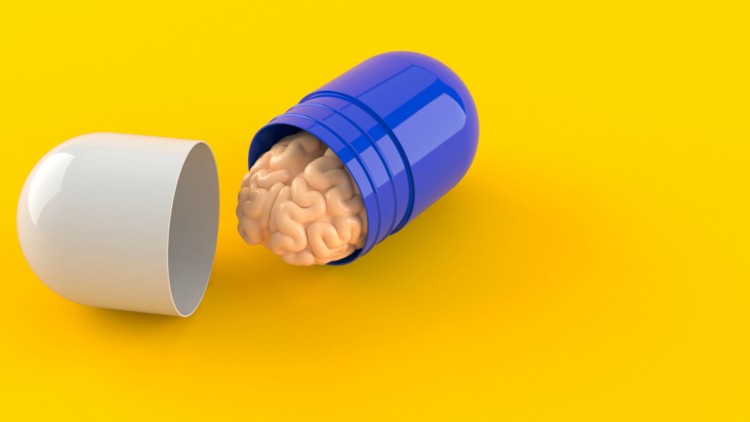
Nootropics can come in the form of natural substances, like caffeine and curcumin, which are often used to develop nootropic supplements and drugs. ©Getty Images Nootropics have been attracting increasing consumer interest as people seek to perform better at work and school, but one academic has voiced concerns. Sarah Benson, a Postdoctoral Research Fellow at Swinburne University’s Centre for Human Psychopharmacology, has been researching nootropics — cognitive enhancers meant to improve concentration, alertness and memory. Speaking to NutraIngredients-Asia , she said: “The mechanisms of action and implications are different for different substances. Typically, enhancers work by increasing blood flow to the brain, but may also alter neurochemicals or stimulate nerve growth. “When used correctly, these products tend not to have negative side effects. However, people may ‘stack’ cognitive enhancers — that is, combine several nootropics that are taken together. These combinations are usually not researched, and the effects on health are not known.” ‘Natural’ does not mean ‘safe’ Claims that certain nootropic supplements are ‘natural’ are common as they tend to be attractive to buyers, though this does not necessarily mean they are safe to consume. Nootropics can come in the form of natural substances, like caffeine, Bacopa monnieri , curcumin, ginkgo biloba , and Siberian ginseng, which are often used to develop nootropic supplements and drugs. Benson said that while there was “compelling evidence” from clinical trials showing that certain nutraceuticals were indeed able to enhance cognitive function, it was imperative to note that their efficacy could differ depending on the standardisation and compositions of the ingredients used. Additionally, the nootropics that have been clinically tested may not be identical to that of a purchased product. The vast difference in the level of regulation nutraceuticals and pharmaceuticals are subject to is also a factor. While […]
Boost academic scores with exercise: Research shows cardio pumps up math and reading performance

( Natural News ) A Florida State University and Larkin Community Hospital study concluded that high intensity interval training can improve a student’s abilities in math and reading. Frank Fincham who was part of the research said that their findings are “surprising” but can be a simple and effective way for struggling college students to boost their academic performance . As he puts it, “This high intensity interval training is a way to get the benefits of exercise in a more time-efficient way. In addition to the cardiovascular benefits, we found that students were showing improvements in math and reading working memory.” Fincham said that the varied benefits of exercise are well-documented, but little is known about how it can potentially help students. As part of the study, 60 students from the Florida State University were randomly assigned into two groups. The first group exercised three times a week for four weeks at 20 minutes per session. The other group, considered as the control, did not go through any specific workout but could exercise if they wished or if that was already part of their regular routine. Both groups answered standard tasks regarding their verbal skills and math comprehension. Fincham and his team saw that the exercise group showed vast improvements while the control group did not. “Students who are struggling with math should maybe look at doing more high intensity interval training ,” said Marcos Sanchez-Gonzales who helped conduct the study. The magic pill to becoming smarter? Regular exercise If you remember your days in school, exam time was always stressful. For those who loved school, the stress was deliciously addictive, but also nerve-wracking. Students who struggled, on the other hand, seemed to always be bathed in a cold sweat. All the same, there was always the wish […]
Why sleep is so important and some tips to help you get a restful night

( Natural News ) A good night’s sleep isn’t just relaxing, it’s absolutely essential. Missing just an hour of sleep can do a serious number on your person. From impacting your appetite to potentially making you more accident prone, you have a lot to lose from the lack of sleep . Sleep, you, and the world The significance of sleep is well-known, but just what exactly occurs during this biological process is still being studied to this day. Many agree that whatever happens while we rest is key to our survival. As per noted sleep expert Dr. Meir Kryger: “Some of the reasons suggested for why humans sleep include removal of waste material from the brain, conservation of energy, the restoration of important bodily functions, and the repair of damaged tissues. Certain hormones, for example, are secreted mainly during sleep.” (Related: Sleep most important ingredient of good health, even over diet and exercise, according to scientists .) That being said, depriving yourself of sleep can have serious consequences on your person and even those around you. Firstly, poor sleep quality and duration can actually make you more susceptible to a variety of health conditions. According to Healthline.com , these range from heart disease to stroke to pre-diabetes to the common cold. Just a bit of sleep loss is enough to greatly impact your immune system function. One study came to the conclusion that sleeping less than seven hours a night makes you three times more likely to catch a cold. Another study suggested that getting no more than four hours of sleep can bring about the symptoms of pre-diabetes after six nights. The power of the elements : Discover Colloidal Silver Mouthwash with quality, natural ingredients like Sangre de Drago sap, black walnut hulls, menthol crystals and more. Zero […]
Take bacopa every day to boost mental clarity

( Natural News ) Looking for a powerful natural supplement that will support brain health ? Try taking bacopa ( Bacopa monnieri ) every day. Bacopa has bacopasides, a unique group of bioactive compounds. The two main bacopasides identified are bacopaside A and bacopaside B. Together, these compounds make up eight percent of bacopa’s dry weight. Bacopasides are believed to play essential roles in the benefits that bacopa provides. The following are some of the benefits and mechanisms of bacopa for the brain: Bacopa increases stress resilience – Bacopa is part of a small group of herbs called adaptogens, which increases resilience to stress and enhance overall health by putting the body into a state of balance called homeostasis. Homeostasis maintains stability in the body, such as keeping the body temperature relatively constant. Bacopa, like all adaptogens, maintains the balance of the levels of the potentially damaging stress hormone cortisol and supports adrenal function. Bacopa regulates neurotransmitters – Bacopa regulates neurotransmitters, biochemicals responsible for many functions of the brain, such as mood, appetite, one’s ability to focus, concentrate, learn, and many more. Bacopa improves blood flow to the brain – Taking a bacopa supplement daily can lead to improved blood flow to the brain. Having a better blood flow to the brain is essential because blood transports oxygen, nutrients, hormones, neurotransmitters, and glucose to the brain. Bacopa promotes new nerve cell formation – Promoting the growth of new nerve cell endings called dendrites are important because dendrites are responsible for the communication between brain cells. Bacopa is a powerful antioxidant – As an antioxidant, bacopa prevents the effects of free radical damage to the brain. Bacopa prevents inflammation – Chronic brain inflammation is a primary contributor to depression, anxiety, memory loss, stroke, and Alzheimer’s. Bacopa fights depression – Bacopa […]
10 Ways To Protect Your Brain From Alzheimer’s
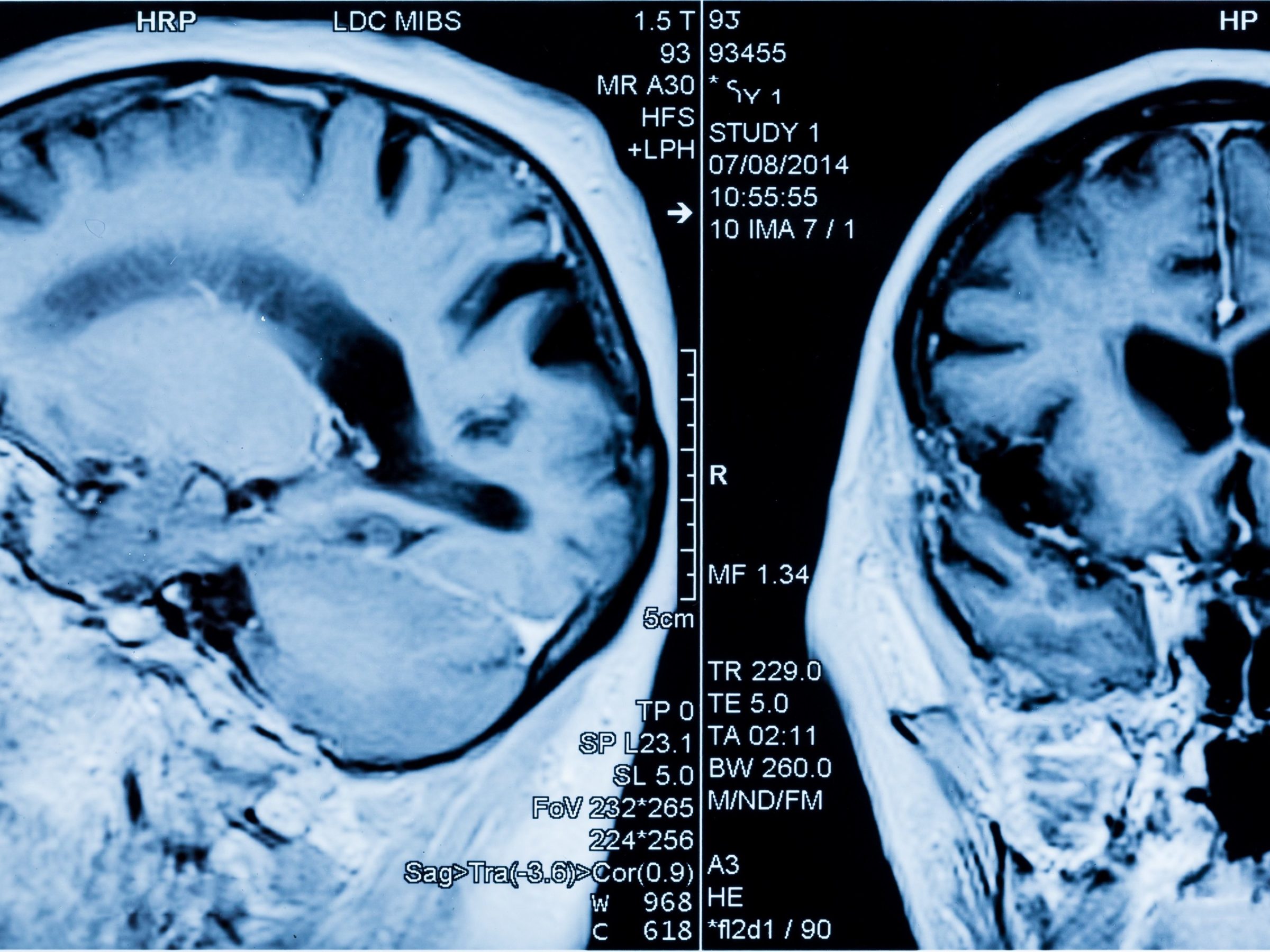
MRI Head Scan Alzheimer’s. The mere mention of the word sends shivers down our collective spines. Millions have been touched by it, having witnessed the devastation up close with loved ones who’ve been diagnosed. It is, as we all know, a grim picture, so it’s imperative that each one of us does everything possible to avoid the disease. While we don’t know exactly what causes Alzheimer’s, there is mounting evidence that suggests the changes you make now can have a considerable impact on what happens to your brain decades from now. The current thinking is that we may be able to significantly slow or even stop the progression of Alzheimer’s by adopting as many brain-supportive habits as early in life as possible. Here are the big ones to help keep your brain in top form for as long as possible: 1) Tame inflammation, ’round the clock Chronic inflammation is often the starting point for diseases that these days are tragically becoming endemic, such as Alzheimer’s and other forms of dementia. Fortunately, inflammation can be tamed, by trading sugars, industrial oils, processed foods, and factory-farmed meats for wholesome, fresh, consciously-raised, real foods and by maintaining the bacterial balance of the gut microbiome. To get on a more brain-supportive path, start with a 2 or 3 week cleanse to fortify and repair your gut, and add in the brain-loving foods listed below. 2) More movement, and a lot less couch-potato time Simply put, moving your butt is good for your brain. Frequent movement helps improve memory and slows the rate of cognitive decline. Movement also increases blood flow to the brain, key for the health of the organ. According to the Alzheimer’s Research & Prevention Foundation, regular exercise cuts the risk of developing the disease by half, so keep moving. If […]
Say ‘no’ to nootropics? Expert advises extreme caution and extensive research
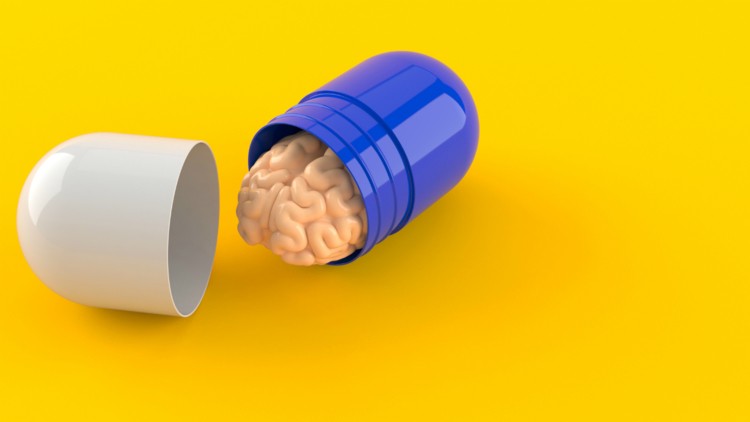
Nootropics can come in the form of natural substances, like caffeine and curcumin, which are often used to develop nootropic supplements and drugs. ©Getty Images Nootropics have been attracting increasing consumer interest as people seek to perform better at work and school, but one academic has voiced concerns. Sarah Benson, a Postdoctoral Research Fellow at Swinburne University’s Centre for Human Psychopharmacology, has been researching nootropics — cognitive enhancers meant to improve concentration, alertness and memory. Speaking to NutraIngredients-Asia , she said: “The mechanisms of action and implications are different for different substances. Typically, enhancers work by increasing blood flow to the brain, but may also alter neurochemicals or stimulate nerve growth. “When used correctly, these products tend not to have negative side effects. However, people may ‘stack’ cognitive enhancers — that is, combine several nootropics that are taken together. These combinations are usually not researched, and the effects on health are not known.” ‘Natural’ does not mean ‘safe’ Claims that certain nootropic supplements are ‘natural’ are common as they tend to be attractive to buyers, though this does not necessarily mean they are safe to consume. Nootropics can come in the form of natural substances, like caffeine, Bacopa monnieri , curcumin, ginkgo biloba , and Siberian ginseng, which are often used to develop nootropic supplements and drugs. Benson said that while there was “compelling evidence” from clinical trials showing that certain nutraceuticals were indeed able to enhance cognitive function, it was imperative to note that their efficacy could differ depending on the standardisation and compositions of the ingredients used. Additionally, the nootropics that have been clinically tested may not be identical to that of a purchased product. The vast difference in the level of regulation nutraceuticals and pharmaceuticals are subject to is also a factor. While […]
What A Day Taking Functional Mushrooms Looks Like + How It Can Boost Your Skin, Gut & Brain Health

We’re always on the lookout for functional foods that we can add to our lives that will enhance the way we feel and how we show up in the world. Maybe you’ve heard about functional mushrooms and some of their benefits, but you’re wondering which mushrooms to take and how to actually use them in your everyday life. Each mushroom species has its own functional superpower, so these nutritional powerhouses can help support everything from brain health and immune defense to natural energy and youthful radiance. "Mushrooms are a truly unique superfood," says Sandra Carter (M.A., MPH, Ph.D.), integrative health expert and founder of Om Mushrooms . "They contain many key nutrients like super antioxidants, prebiotics, and digestive enzymes that we have a hard time getting from other plant or animal sources, which makes them an essential part of activating and balancing our immune system, nerve and brain health, and cardiovascular system." Like all superfoods, they’re not a magic bullet, so it’s best to incorporate them into your daily routine to reap the extraordinary benefits. Besides making sure you take them regularly, another thing to be aware of is the quality of the mushroom powders you’re buying—look for pure, whole food mushroom powders, organically grown in the United States (we love Om , Organic Mushroom Nutrition). One of the best things about these mushroom powders like lion’s mane , reishi , cordyceps , chaga and turkey tail (besides the long-term benefits) is that they’re easy to use and you can simply add to drinks, smoothies, dressings, sauces, soups, stews, and even desserts. We love to create little rituals throughout the day that feature each mushroom’s superpower. Here’s how you can easily incorporate functional mushrooms into your everyday routine from your morning smoothie to your evening sweet treat. Lion’s mane […]
Rid yourself of your junk food cravings by improving the quality of your sleep

( Natural News ) Fight your junk food cravings and cut the risk of Type 2 diabetes by getting better-quality sleep. A study presented at the 2018 national meeting of the Associated Professional Sleep Societies revealed that having better-sleep quality might reduce the risk of night-time snacking and slash the risk of developing Type 2 diabetes. For the study, researchers from the University of Arizona examined 3,105 adults by asking them about their night-time snack consumption and whether poor sleep quality enhanced their junk food cravings. The results revealed the 60 percent of the participants said they regularly snack at nighttime and two-thirds reported their lack of sleep intensified their cravings. In general, junk food cravings doubles the risk of bedtime snacking, which was linked to a greater risk of Type 2 diabetes. (Related: How to Avoid Junk Food You Can’t Resist + Vanilla Custard Recipe .) “Laboratory studies suggest that sleep deprivation can lead to junk food cravings at night, which leads to increased unhealthy snacking at night, which then leads to weight gain,” explained Michael A. Grandner, one of the study researchers. According to the researchers, the findings of the study provide essential information on the link between poor sleep, junk food cravings, and unhealthy night-time snacking. The study also demonstrated how sleep and eating patterns are connected and work together to enhance health. What is considered as good quality sleep? The National Sleep Foundation released the key determinants of a good quality sleep , which were established by a panel of experts. These key indicators of quality sleep are included in a report published in the journal Sleep Health. These include the following: Mother Nature’s micronutrient secret : Organic Broccoli Sprout Capsules now available, delivering 280mg of high-density nutrition, including the extraordinary "sulforaphane" and "glucosinolate" nutrients […]
A powerful compound in rosemary protects your brain from damage

( Natural News ) Are you in need of stress relief? According to a study published in the journal BMC Complementary and Alternative Medicine , carnosol, an antioxidant compound found in rosemary, can relieve chronic stress and help fend off its side effects on the body. The American Psychology Association (APA) reports that a large percentage of Americans, including children, are experiencing chronic stress or its symptoms . A 2010 survey revealed that 44 percent of respondents suffered more significant levels of stress than they did the past year. Common causes included finances, employment, and the economy. The APA warns that chronic stress cannot be ignored as it can result in far-reaching consequences. Stress disrupts brain function, leading to confusion, depression, and anxiety, but its effects do not stop there. Stress also affects other parts of the body , causing conditions like body pain, difficulty or rapid breathing, irregular menstruation in women, erectile dysfunction in men, Type 2 diabetes, and heart disease. More worrisome is the revelation that chronic stress is affecting younger people, too. The noted survey indicated that almost a third of children had experienced physical stress-related symptoms, such as headaches, stomach troubles, and difficulty sleeping. Overweight children were of particular concern as experts noted that stress and being overweight has a bidirectional relationship, meaning that either could be a cause and an effect of each other. A study funded by the Research Affairs of Neyshabur University of Medical Sciences looked into the de-stressing ability of carnosol , a compound found abundantly in rosemary . Their study focused on the antioxidant’s ability to protect the brain from damage caused by stress. The power of the elements : Discover Colloidal Silver Mouthwash with quality, natural ingredients like Sangre de Drago sap, black walnut hulls, menthol crystals and more. […]
Nourish your brain by choosing organic food

( Natural News ) Eating well nourishes not just your body, but also your brain. And when it comes to food, nothing is better for your neurons than organic produce . The brain is called the control center of the body – and for good reason. All the processes in your body are practically managed by the brain, even those you do not have conscious control over. The brain also stores your memories, gives rise to your moods, and makes your emotions possible. Eating organic food is one of the best ways to ensure that your brain is adequately fed the nutrients it needs to function optimally. Not only are organics free from chemical pesticides and other harmful toxins, they also contain more of the nutrients that make fruits and vegetables so essential to good health. That they taste better than conventional fare – preserved and shipped for weeks from other countries – is a huge bonus. The best way to obtain organic food is to visit your local farmer’s market. Because they are grown in your area, they end up costing cheaper, too. But because the stalls are usually open just one day in a week, it’s best to plan ahead before you set out to fill your pantry. It’s a problem during winter, but the summertime offers a rich variety of flavors and food items you can buy to get a healthy body and mind. What nutrients does your brain need? Because of its many crucial functions and its non-stop action, the brain is understandably one of the most nutritionally demanding organs of the body. Here are some of the nutrients most needed by your brain and what they do: 100% organic essential oil sets now available for your home and personal care, including Rosemary, Oregano, Eucalyptus, […]
Exercise preserves brain cells and prevents memory loss

( Natural News ) Exercise has been known to be essential for overall health. In a study carried out by researchers at the University of Jyvaskyla in Finland, the benefits of exercise on brain health have been emphasized. Researchers found that exercise can help preserve brain cells and prevent loss of memory, cognitive problems, and general problems in memory. For the study, the researchers assigned different groups of mice to three different workout programs in order to identify the effects of the exercises on memory and overall brain health. The three types of workout programs studied were weight lifting, running, and high-intensity interval training (HIIT). These were created as a model of approximately what the typical human might do in a workout program. At the end of the study, all of the mice exhibited general fitness gains. In particular, aerobic activity was found to enhance the health of brain cells and prevent memory problems better than the two other exercise programs. Although the weight lifting group and the HIIT group showed better fat-burning activities than the aerobic group, they did not show any signs of new brain cell growth or prevention in memory loss and other memory problems. The Finnish study was not the only study to demonstrate the benefits of exercise to the brain. In fact, a 2014 study of elderly women revealed a similar effect. In that study, elderly women who engaged in regular aerobic exercise exhibited growth in the region of the brain responsible for memory. Meanwhile, those who engaged only in weightlifting did not show this positive effect on their brain cells. Mother Nature’s micronutrient secret : Organic Broccoli Sprout Capsules now available, delivering 280mg of high-density nutrition, including the extraordinary "sulforaphane" and "glucosinolate" nutrients found only in cruciferous healing foods. Every lot laboratory tested. […]
7 ways to eat to boost your brainpower, without taking supplements
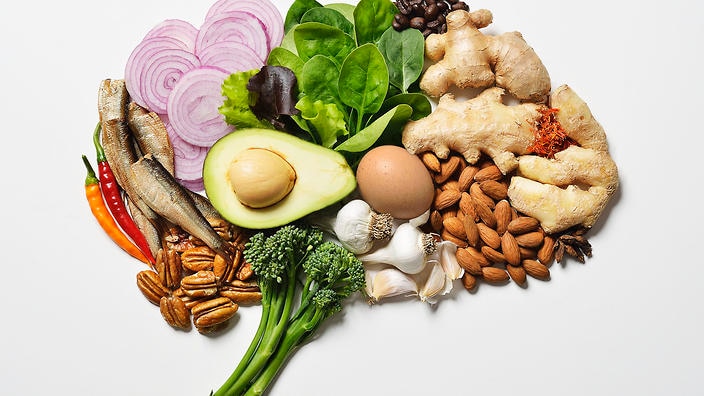
In our recent pursuit to become smarter, faster, a new pharmaceutical market has been born for a type of supplement called ‘nootropics’. Also known as ‘smart drugs’, nootropic supplements promise to enhance your cognition function and supercharge your memory. Take a nootropic pill regularly, marketing claims suggest, and you’ll be able to learn new things, feel more motivated, have better memory recall and boosted concentration rates. Yet the sale of nootropic supplements raises one vital question: do we really need to be taking pills to boost our daily brain performance? Melanie McGrice, spokesperson for the Dietitians Association of Australia , tells SBS that we don’t need to turn to pills for brainpower. We can boost our memory, concentration and mental performance by eating the right foods: nootropic foods. “Of course, there are always exceptions to the rule: people who are unable to meet their nutritional requirements because they’ve had gastrointestinal surgery, have a food allergy or intolerance, a specific illness or are pregnant,” says McGrice, an Accredited Practising Dietitian. “But, for the general population, I believe food should be our main source of our nutritional needs, for all situations including cognitive performance.” Here are nootropic foods – ‘smart foods’ – that McGrice recommends we eat to maximise our brain’s performance. 1. Caffeine You’ve probably already experienced how a cup of coffee or tea has boosted your mental alertness. But research also suggests that caffeine may be able to improve various memory types. A study conducted by researchers at John Hopkins University shows that caffeine enhances certain memories for at least 24 hours after it is consumed. The research, published by the journal Nature Neuroscience in 2014 , concluded that caffeine can enhances our brain’s ability to consolidate long-term memories. Another study also found caffeine may be able to improve […]
